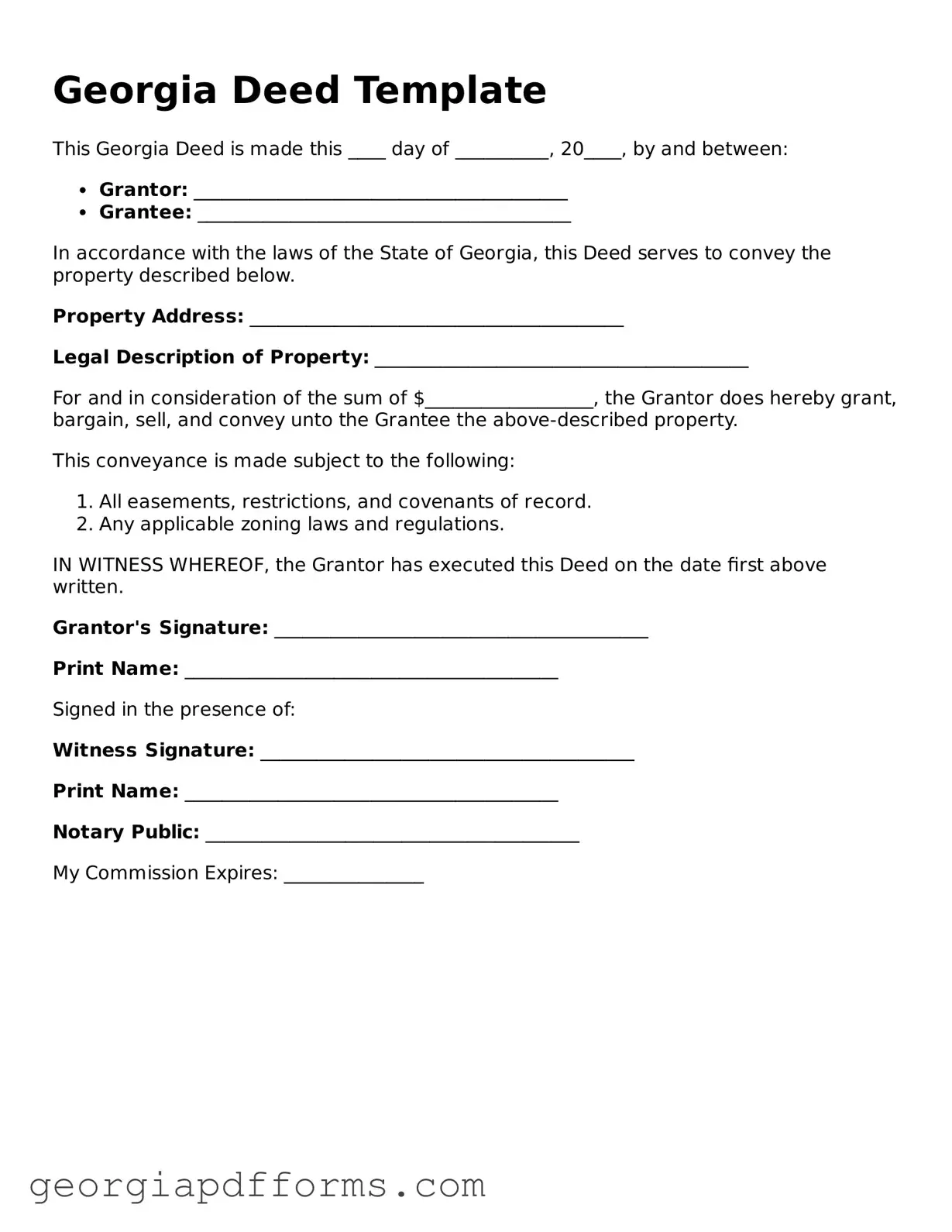What is a Georgia Deed form?
A Georgia Deed form is a legal document used to transfer ownership of real estate in the state of Georgia. It outlines the details of the property being transferred, the parties involved in the transaction, and the terms of the transfer. This document is essential for establishing legal ownership and ensuring that the transfer complies with state laws.
What types of Deeds are available in Georgia?
In Georgia, there are several types of Deeds, including Warranty Deeds, Quitclaim Deeds, and Special Purpose Deeds. A Warranty Deed provides a guarantee that the seller holds clear title to the property. A Quitclaim Deed transfers whatever interest the seller has without any warranties. Special Purpose Deeds cater to specific situations, such as tax sales or foreclosure sales.
How do I complete a Georgia Deed form?
To complete a Georgia Deed form, start by filling in the names of the grantor (the seller) and the grantee (the buyer). Include a legal description of the property, which can usually be found in previous deeds or property tax records. Sign the document in the presence of a notary public, who will then notarize it. Finally, file the completed Deed with the county clerk's office where the property is located.
Do I need a lawyer to prepare a Georgia Deed?
While it is not legally required to hire a lawyer to prepare a Georgia Deed, it is often advisable. A legal professional can ensure that the document is completed correctly and complies with state laws. This can help prevent future disputes or issues with the title.
What is the cost to file a Georgia Deed?
The cost to file a Georgia Deed varies by county. Generally, you can expect to pay a recording fee, which may range from $10 to $50, depending on the number of pages and the county's specific fees. It’s important to check with your local county clerk’s office for the exact amount.
Can I transfer property using a Georgia Deed if there is a mortgage on it?
Yes, you can transfer property with a mortgage using a Georgia Deed. However, the mortgage lender may have specific requirements or restrictions. It’s wise to consult with the lender before proceeding with the transfer to avoid any potential issues.
What happens if I don’t record my Georgia Deed?
If you do not record your Georgia Deed, you may still legally own the property, but you risk losing certain protections. Recording the Deed provides public notice of your ownership and helps protect your rights against claims from other parties. Without recording, you may face challenges in proving ownership in the future.
How long do I have to record a Georgia Deed?
In Georgia, there is no strict deadline for recording a Deed. However, it is advisable to record it as soon as possible after the transfer. Delaying the recording can lead to complications, especially if disputes arise regarding the property.
Can I revoke a Georgia Deed after it has been recorded?
Once a Georgia Deed is recorded, it cannot be revoked unilaterally. If you wish to change the ownership, you will need to execute a new Deed. This new Deed should clearly state the changes and follow the proper legal procedures for transfer.

